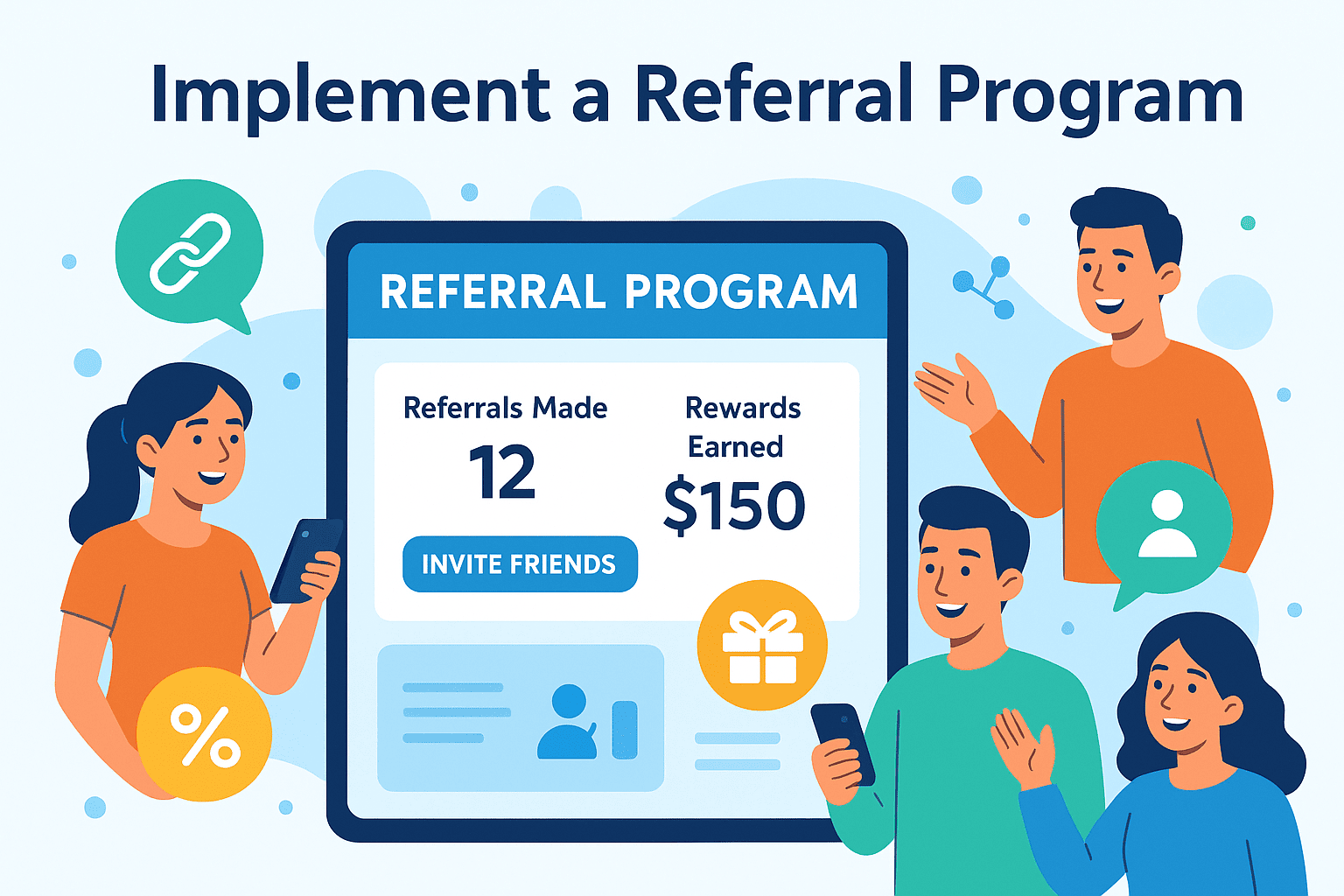When it comes to growing your business, there’s nothing quite like word-of-mouth marketing. Implement a Referral Program to harness this power and encourage customers to spread the word about your brand. And what better way to leverage that than through a referral program? If your guests love what you offer, they’ll likely recommend you to their friends and family sometimes, they just need a little nudge. A referral program gives them that push by rewarding them for sharing their good experiences with others.

Here’s a straightforward approach to creating a referral program that works, bringing new customers through your doors and keeping your current ones happy.
Why a Referral Program Makes Sense
Let’s be real: people trust their friends and family more than they trust ads. Think about it. If your friend tells you about a great place they just ate at or a hotel they stayed in, you’re probably going to check it out before considering random ads you see online. That’s exactly why referrals work so well.
There’s a stat that sums it up perfectly: 92% of people trust recommendations from people they know, according to Nielsen. Referrals lead to higher conversion rates because the recommendation comes from a trusted source. A good referral program can tap into this trust and help you attract new customers who are already inclined to like what you offer.
Steps to Implement a Great Referral Program
1. Define Your Goals First
Before diving into any details, it’s important to figure out what you want your referral program to achieve. Are you trying to get more customers through the door? Increase online bookings? Or maybe you want to encourage repeat visits? Your goals will help shape how the program works.
For instance, if you run a hotel, your goal might be to drive more direct bookings. If you own a restaurant, it might be about getting more foot traffic, especially on slow days. Whatever it is, having clear goals will help guide the rest of the process.
2. Offer the Right Incentives
To get people excited about referring their friends, you need to offer something they actually want. Cash rewards can work, but sometimes other types of incentives can be even more appealing. Here are a few ideas:
- Discounts: A simple discount on their next purchase or visit is often enough. This can work great for businesses that rely on repeat customers.
- Gift cards: Some customers may prefer gift cards, especially if they’re versatile and easy to use.
- Exclusive experiences: Offering a free upgrade, VIP access, or something unique is another way to motivate people.
- Small gifts: Depending on your business, a thoughtful gift like branded merchandise or vouchers for local attractions can work well.
Whatever you choose, the key is to make sure the reward feels valuable but still makes sense financially for your business. You want to give guests a reason to refer without breaking the bank.
3. Keep the Process Simple
People are busy. If it takes too long or feels too complicated to refer a friend, they’re not going to bother. That’s why it’s so important to keep the process simple and easy.
Here’s how you can make it seamless:
- Give customers a referral code they can share with friends.
- Allow them to refer through a quick online form or an app if applicable.
- Make it easy for the person being referred to claim their reward too.
By streamlining the process, you’ll increase the chances of people actually participating.
4. Promote Your Program Everywhere
It doesn’t matter how great your referral program is if no one knows about it. Promotion is key. Here are some ways to get the word out:
- Send an email to your existing customers explaining the program. Keep it short, sweet, and easy to understand.
- Post on social media: Use your platforms to remind customers about the referral program and make sure it’s easy for them to share the details.
- In-person reminders: If you have a physical location, train your staff to mention the referral program during checkout or service.
- Prominent website placement: Make sure people visiting your site can easily find information about the referral program, whether it’s through a dedicated page or a quick pop-up.
The more people hear about your program, the more likely they’ll take part.
5. Track Your Success and Adjust as Needed
You don’t want to set it and forget it. It’s important to keep an eye on how the program is doing. Are you getting the number of referrals you hoped for? Are those referrals leading to new customers? Tracking these metrics will help you see what’s working and what needs tweaking.
If the numbers aren’t where you want them to be, consider changing up the incentive or simplifying the process even more. Regularly checking in on the program will ensure it stays effective over time.
Additional Tips to Enhance Your Referral Program
- Create a sense of urgency: Consider offering a limited-time bonus for referrals to encourage people to act quickly rather than putting it off.
- Show social proof: Encouraging referrers to leave a review or share their experience on social media can boost credibility and help attract new customers.
- Show gratitude: Sending a thank-you note or giving a small extra reward can go a long way in showing appreciation for those who take the time to refer others.
Conclusion
A referral program is one of the simplest ways to grow your business through the power of word-of-mouth. By giving your current customers an easy way to refer their friends and rewarding them for it, you’ll not only bring in new business but also build stronger relationships with your existing customer base.
It doesn’t have to be complicated. With the right approach and some thoughtful incentives, you can implement a referral program that works for you and your customers will do the rest.